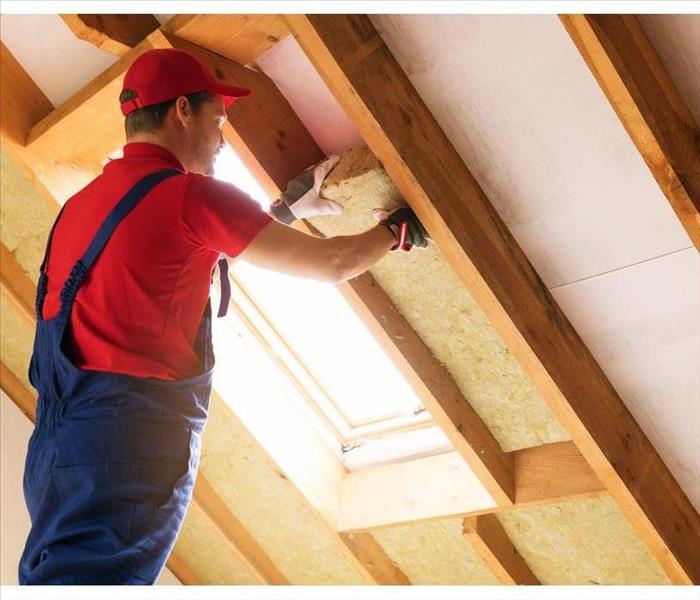How To Prevent a Pipe Burst: 4 Tips for Avoiding Frozen Pipes
4/12/2022 (Permalink)
How To Keep Your Piping Warm Through Wintertime
If you are a homeowner in Wildwood Lake, TN, knowing how to prepare your residence for every season can help you prevent common weather-related damages. In the colder months, some of the most common problems people report to water damage remediation experts involve frozen pipes. Because of this, knowing how to keep your piping warm through wintertime can end up saving you a lot of time and money down the road. Here are four tips.
1. Insulate, Insulate, Insulate!
Whenever you encounter a pipe freeze, you run the risk of it bursting. For this reason, you should insulate the crawl spaces and attic of your home to keep exposed pipes warm. When it comes to insulating these areas, less is never more. For more protection, add more insulation.
2. Tape Them Up
In addition to insulating different areas of the house, you also want to protect the actual pipes themselves by wrapping them up with heat tape. Be sure to use products that have passed third-party testing, and follow any manufacturer instructions.
3. Seal Leaks
Another common cause of frozen pipes is when air is able to leak into the space where the piping is. Whenever the temperatures are low enough, even a little bit of air can quickly lead to a pipe freeze. As such, you should promptly seal any leaks you notice near pipes, electrical wiring, or dryer vents using caulk or another form of insulation.
4. Keep Water Flowing
One of the best ways to prevent freezing is by keeping the water flowing. If you can let water drip overnight, even a trickle can be enough. Additionally, if your pipes are already frozen, it does not mean you have a pipe burst. If a freeze occurs, try turning on the water and leave the faucet on even if water does not come out. Call a professional if you need further assistance.
When the temperatures drop, knowing how to avoid frozen pipes in your home can save you a lot of headache. Luckily, there are simple steps you can take to keep your residence protected.






 24/7 Emergency Service
24/7 Emergency Service
